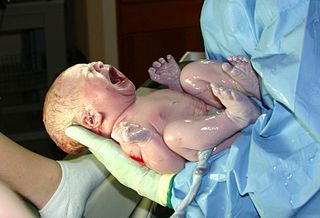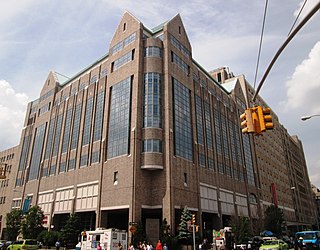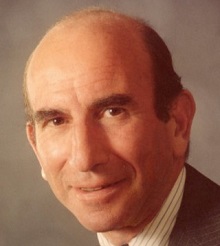Related Research Articles

Taipei Medical University in Taiwan is located in Taipei's Xinyi District. Founded as Taipei Medical College in 1960, it was renamed as Taipei Medical University in 2000. TMU has expanded into a world class university with ten colleges, 6,000 students per year, five hospitals, and more than 40,000 alumni around the world.

Neonatology is a subspecialty of pediatrics that consists of the medical care of newborn infants, especially the ill or premature newborn. It is a hospital-based specialty, and is usually practised in neonatal intensive care units (NICUs). The principal patients of neonatologists are newborn infants who are ill or require special medical care due to prematurity, low birth weight, intrauterine growth restriction, congenital malformations, sepsis, pulmonary hypoplasia or birth asphyxia.

A neonatal intensive care unit (NICU), also known as an intensive care nursery (ICN), is an intensive care unit (ICU) specializing in the care of ill or premature newborn infants. Neonatal refers to the first 28 days of life. Neonatal care, as known as specialized nurseries or intensive care, has been around since the 1960s.

Morgan Stanley Children's Hospital of NewYork-Presbyterian is a women's and children's hospital at 3959 Broadway, near West 165th Street, in the Washington Heights neighborhood of Manhattan, New York City. It is a part of NewYork-Presbyterian Hospital and the Columbia University Irving Medical Center. The hospital treats patients aged 0–21 from New York City and around the world. The hospital features a dedicated regional ACS designated pediatric Level 1 Trauma Center and is named after financial firm Morgan Stanley, which largely funded its construction through philanthropy.

Hattie Elizabeth Alexander was an American pediatrician and microbiologist. Hattie earned her M.D. from Johns Hopkins University in 1930 and continued her research and medical career at Columbia-Presbyterian Hospital in New York City. She became the lead microbiologist and the head of the bacterial infections program at Columbia-Presbyterian. Alexander occupied many prestigious positions at Columbia University and was well honored even after her death from liver cancer in 1968. She is known for her development of the first effective remedies for Haemophilus influenzae infection, as well as being one of the first scientists to identify and study antibiotic resistance. Hattie has received many awards and honors including the E. Mead Johnson Award in 1942, for her headway in pediatric research and antibiotic resistance. Her research and studies helped lay the ground work for research into antibiotic and vaccine development.

The Sloane Hospital for Women is the obstetrics and gynecology service within NewYork-Presbyterian Hospital and the Department of Obstetrics and Gynecology of the Columbia University College of Physicians and Surgeons (P&S) in New York City. It was founded in 1886 with Columbia P&S as a training and treatment center for obstetrics. It has provided over 100 years of obstetrical care. The hospital is located within Morgan Stanley Children's Hospital.
Charles Lawrence Schleien is an American pediatrician, the Philip Lanzkowsky Professor of Pediatrics and pediatrician-in-chief at Northwell Health as of May 1, 2012.

Luther Emmett Holt was an American pediatrician and author, noted for writing The Care and Feeding of Children: A Catechism for the Use of Mothers and Children's Nurses in 1894.

Melvin Malcolm Grumbach was an American pediatrician and academic who specialized in pediatric endocrinology. Called Edward B. Shaw Distinguished Professor of Pediatrics, Emeritus at the University of California, San Francisco School of Medicine, Grumbach was noted for his research and writing on the effect of hormones and the central nervous system on growth and puberty and their disorders; the function of the human sex chromosomes; and disorders of sexual development.

Dr. Karthik Nagesh is a neonatologist in India. He has been practicing neonatal intensive care since 1992 at the Manipal Hospital in Bangalore. He is well known in India for his pioneering work in intensive care for sick neonates especially, Surfactant Therapy and ventilation for sick babies with respiratory distress. He is currently the Chairman of the Manipal Advanced Children's Center and Chairman and HOD of Neonatology and Neonatal ICUs at the Manipal Hospitals Group as well as an adjunct professor of paediatrics, KMC at Manipal University.
Bubble CPAP is a non-invasive ventilation strategy for newborns with infant respiratory distress syndrome (IRDS). It is one of the methods by which continuous positive airway pressure (CPAP) is delivered to a spontaneously breathing newborn to maintain lung volumes during expiration. With this method, blended and humidified oxygen is delivered via short binasal prongs or a nasal mask and pressure in the circuit is maintained by immersing the distal end of the expiratory tubing in water. The depth to which the tubing is immersed underwater determines the pressure generated in the airways of the infant. As the gas flows through the system, it "bubbles" out and prevents buildup of excess pressures.
William Aaron Silverman was an American physician who made important contributions to neonatology. He held academic positions at Columbia University College of Physicians and Surgeons and served as the medical director of the neonatal intensive care unit at Columbia-Presbyterian Medical Center. Silverman urged physicians to address considerations like quality of care in formulating medical treatment plans, especially in the management of premature infants.
Joseph J. Volpe is an American physician, the Bronson Crothers Professor of Neurology, Emeritus at Harvard Medical School and Neurologist-in-Chief Emeritus at Boston Children's Hospital. He was an early contributor to the field of neonatal neurology and has authored several editions of an influential textbook, Neurology of the Newborn.
Roberta A. Ballard is recognized for her contributions to neonatal medicine. In 1965, she graduated from the University of Chicago's medical school and has dedicated much of her life to research on newborn prenatal health. Specifically, Dr. Ballard studies ways to treat and prevent chronic lung disease in premature infants. Some of her research includes the collection of data regarding how inhaled Nitric Oxide can help premature infants who are suffering from lung disease and are undergoing medical ventilation. From her studies she was able to find that Nitric Oxide reduced the risk of death and shortened hospitalization time for infants born prematurely who suffer from lung disease. These contributions have helped to prevent chronic lung disease and brain injury harming infants. Hospitals that Dr. Ballard is associated with include the Hospital of the University of Philadelphia, University of PA Medical Center/Presbyterian, Saint Christopher's Hospital for Children, and Children's Hospital of Philadelphia. Dr. Ballard also served as a Professor of Pediatrics at the University of California, San Francisco School of Medicine. Currently, she is Emeritus Professor of Pediatrics and Obstetrics and Gynecology at the University of Pennsylvania. While also being a professor, Dr. Ballard has contributed her knowledge in articles including the New England Journal of Medicine, Pediatrics, Journal of Perinatology, and more. She has served on a number of scientific and medical boards including the American Board of Pediatrics in 1972 and is an author of the book Avery's Diseases of Newborns. The book focuses on the care and treatment of neonates. Dr. Ballard's research and contributions have helped enhance technology and prevent infant death. Her improvements in technology have not only improved the lives of premature infants, but she also seeks to help women who are pregnant to assure they receive proper prenatal attention.

Rustin McIntosh was an American pediatrician. From 1930 until 1960, he was the chief of pediatrics at the Babies Hospital of NewYork–Presbyterian Hospital and the Reuben S. Carpentier Professor of Pediatrics at Columbia University. He received the John Howland Award in 1961.
Barbara J. Stoll is an American pediatrician and professor. She is the H. Wayne Hightower Distinguished Professor in the Medical Sciences, Professor of Pediatrics and former Dean at the University of Texas Health Science Center at Houston.
Joseph Dancis was an American pediatrician at Bellevue Hospital in New York City known for his research contributions to neonatology and placentology. He received the John Howland Award in 1988.
Samuel Zachary Levine was an American pediatrician who was a professor of pediatrics at Cornell University Medical College. His research focused on neonatology, particularly physiology of premature infants. He received the John Howland Award in 1964.
Christian P. Speer is a German pediatrician and Professor of Pediatrics specialized in neonatology at the Julius Maximilian University of Würzburg. Speer is known for his scientific and educational contributions in neonatal medicine.
Jerold Francis Lucey was an American pediatrician and journal editor. He specialised in the field of neonatology, and introduced several therapies to mainstream use in the United States, including phototherapy for neonatal jaundice, transcutaneous oxygen monitoring, and pulmonary surfactant use.
References
- ↑ Chan, KM; Chan, HB (2007). "The Use of Bubble CPAP in Premature Infants: Local experience" (PDF). Hong Kong Journal of Paediatrics. 12 (2): 86–92. doi: 10.1016/S1561-5413(08)60006-X .
- ↑ Jen-Tien Wung MD; Columbia Doctors (accessed 11/16/20)
- ↑ "The Legends of Neonatology 2013 Honorees" (PDF). Neonatology Today. 7 (12A). December 2012.
- ↑ Pk Rajiv, CPAP (Continuous Positive Airway pressure) Bedside Application in the Newborn, (2011), p. xix
- ↑ "Parent and Child, The Babysavers," The New York Times May 11, 1975
- ↑ "Profile: Jen-Tien Wung". ResearchGate .